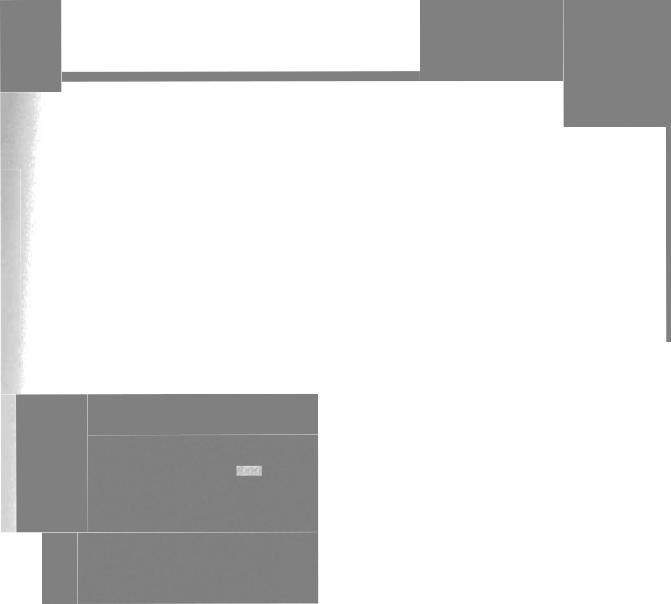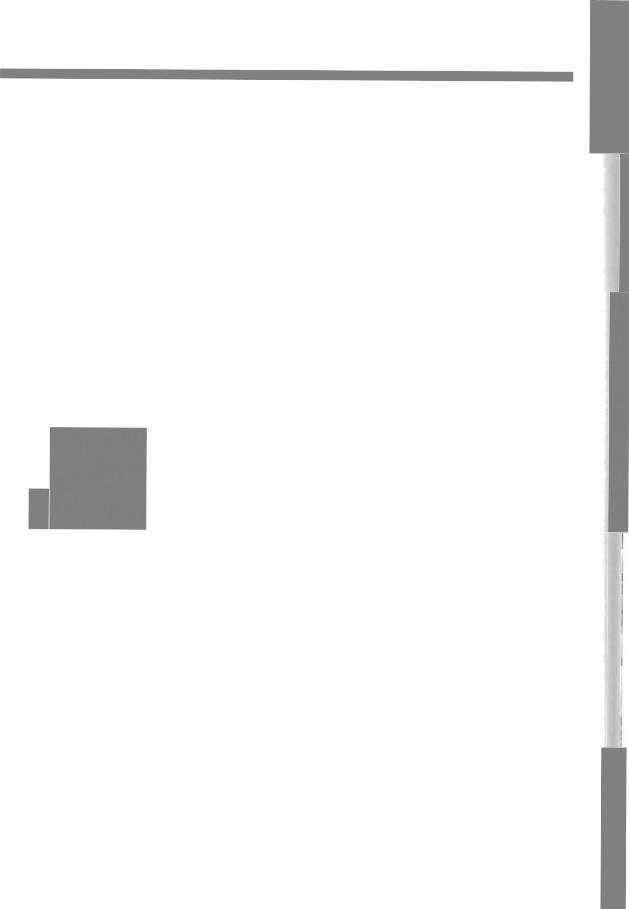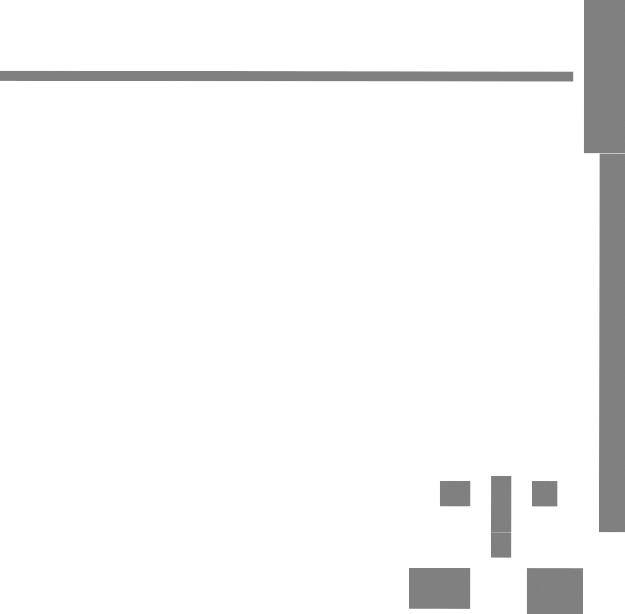
Stella_Cottrell_Critical_Thinking_Skills_Deve
.pdf

Deflection, complicity and exclusion
Language can be used skilfully to construct a powerful argument. However, it can also be used in ways that are unfair and which produce flaws in the line of reasoning. Language can be used to lull the audience into a false sense of security about whether an argument is valid, or can divert the audience from the line of reasoning. Some of these tricks of language are examined below.
This can be a powerful way of enticing the audience into agreement.
As we all know. . . |
,we all know t h a t . . . |
|
Surely, we all share the view that . . . |
||
Everybody knows t h a t . . . |
Everyone believes . . . |
|
It is well established t h a t . |
. . |
|
Deflective language
An author can use language to suggest there is no need to prove the argument, deflecting the audience from critically evaluating the reasoning.
Suggesting the argument is proved
Use of words such as: obviously, of course, clearly, natz~rallysuggests that the argument is so obvious there is no need to evaluate it.
Appeals to modern thinking
Another way of deflecting the audience from the reasoning is by referring to the date, as if that, in itself, added weight to the argument.
We're not in the nineteenth century now!
It's no longer 7 940!
It's like being back in the ark!
As the date is factually accurate, the audience is already drawn into part agreement with the argument. This approach attempts to discredit anyone who disagrees with the argument as being old-fashioned and out-of-date.
If 'everyone' believes something, then the audience would seem unreasonable not to agree.
'People like us': in-groups and out-groups
Another version is to suggest that people with certain attributes, such as 'decent people' or 'anyone with any intelligence', are more likely to agree with the argument. This can be especially convincing if coupled with an appeal to commonly held assumptions and prejudices,
Anyone with any sense knows that women are naturally better at housework than men.
Tajfel (1981)wrote about the way people divide into 'in-groups' and 'out-groups'. The in-group tends to make the out-group appear inferior and undesirable so that others want to avoid being associated with them. Authors can present opponents of their argument as an 'out-group'. The audience is more likely to be persuaded by the arguments of an in-group and less likely to consider the views of the out-group. Appeals to decency, morals, shared values and shared identity can be examples of this:
Encouraging complicity
Everybody knows
This is a particular form of deflective language where the author acts as if the reader were already part of a group of like-minded thinkers.
1 14 Critical Thinking SkilIs
All decent people would agree that X is immoral. As British people (or black people/Muslims/ Catholics/deaf people etc.), we all want . . .
O Stella Cottrell (2005), Critical Thinking Skills,
Palgrave Macmillan Ltd


Unwarranted leaps and castle of cards
Unwarranted leaps
Where there are unwarranted leaps, the author appears to add two and two to make five. The argument races ahead, leaving gaps in the reasoning, and relying on unsubstantiated assumptions.
There is an unwarranted leap to the conclusion that, because a poll shows people want the traffic flow to be improved, they would also support tolls. We are not told whether the poll asked questions about tolls, so we do not know that a toll would be welcomed. The public might have preferred a different solution, such as bus shuttles or car-sharing.
Castle of cards
In castle of cards types of argument,
the author uses a set of interconnected reasons;
the argument becomes precariously balanced, and depends on the previous reasons being accepted;
if one reason or assumption is proved incorrect, the argument collapses easily.
Passage 7.77 Tolls (p. 7 15)
Passage 7.17 contains examples of both unwarranted leaps and castle of cards reasoning. The argument relies on a set of interconnected reasons and assumptions and is very delicately balanced. There are unsubstantiated assumptions which could be challenged such as that:
the traffic problem is caused by the number of cars on the road, rather than, for example, road works or a one-way system;
if a toll was introduced, people would respond by using public transport.
Sleight of hand
A sleight of hand is a 'cunning trick' that can go unnoticed. In passage 7.17: Tolls, the author jumps from a line of reasoning that appears to be discussing tolls, to a conclusion that argues for heavy tolls. This slight change of wording is an example of a 'sleight of hand'.
Passage 7.76 Internet copying (p. 715)
The castle of cards approach is evident in passage 7.16. This makes unsubstantiated claims such as that everybody who is caught copying on the internet could not be charged. This is not proved. On the contrary, large-scale fining is possible, and is used for minor traffic offences and for not having a television licence.
The author then argues that if a law can't be enforced, it shouldn't be passed. This is a matter of opinion and the author hasn't proved the law can't be enforced. Using this argument as the next stepping stone, the author argues that without a law there isn't a crime. There is a sleight of hand here, as the author hasn't mentioned whether a law against such copying is already in place at the time of writing.
The author makes a final leap to argue that if there isn't a crime, nobody has done anything wrong. This is not the case. Right and wrong are questions of ethics, not law. Some acts which are wrong might not yet be enshrined in law. For example, when there is a new invention or an advance in medical technology, it can take time for these to result in changes in the law.
1 1 6 Critical Thinking Skills |
O Stella Cottrell (ZOOS), Critical Thlrzkitlg Skills, |
Palgrave Macmlllan Ltd

Emotive language; Attacking the person
Emotive language
Emotive language uses words, phrases and examples that intend to provoke an emotional response. Some subjects such as children, parents, national pride, religion, crime and security are emotive. Using these unnecessarily as arguments can manipulate the audience's emotions.
People tend to trust their own emotional responses. Strong emotions are usually a signal to the body to act quickly rather than to sGw down and use reasoning. If an author can elicit an emotional response, then the audience is likely to be less critical of the reasoning. Where subjects are emotive, it is particularly important to check the underlying reasoning carefully.
Attacking the person
We saw in Chapter 3 that an argument should take counter arguments into consideration. This means making a critical analysis of the line of reasoning, not using personal attacks on those with opposing views. Attacks on the person rather than the argument are often used to undermine the credibility of an opposing point of view - but it is not a valid method of critical reasoning.
The exception is where there is a valid reason for showing that the opponents either have a history of being dishonest or have not revealed their vested interests in the debate.
Passage 7.15 Community centre (p. 1 15)
In Passage 7.15, Community centre, the author appeals to the emotions using words such as 'poor little children' and references to 'feelings running high' and 'suffering'. The passage reminds the audience of a disaster that had happened to other children in the area. The
incident was very sad but its relevance to the current argument is not clear. That accident happened away from the area, and when there was already a community centre where children could play. There may be a good case for keeping the community centre open, but the author does not present a reasoned argument to support it.
Passage 7.18 Identity cards (p. 7 15)
This passage attacks everyone who opposes the introduction of identity cards on personal terms. It also makes unsubstantiated assumptions about the backgrounds and economic circumstances of opponents, in order to undermine their credibility. As the passage relies on these unacceptable methods rather than reasons and evidence, it demonstrates flawed reasoning.
The passage also encourages complicity in the audience (see page 114). By abusing opponents, the author encourages a division between ingroups and out-groups, or 'people like them' and 'people like us'. Furthermore, the passage draws on emotive subjects, referring to crime and security to win over the audience.
Passage 7.79 The managing director
(P. 7 15)
This passage attacks the person of the manager rather than evaluating his judgements about the likely impact of the new players. It attacks the manager on the grounds of his personal life, not his expertise in managing a rugby team. We may not agree with decisions the manager takes in his personal life, but the passage does not show the relevance of this to managing the club. As the manager denies what is in the media, it may not even be true. The use of the term 'seedy' is emotive, suggesting there is an illicit side to the relationship, but this is not substantiated.
O Stella Cottrell (2005), Critical Tlzinkii~gSkills, |
Does it add up? 117 |
Palgrave Macmillan Ltd |
|

More flaws
Just as you did for p. 115, check whether you can identify the flaws in the following passages. There may be more than one flaw in each passage, including flaws covered in previous sections. The answers will be o n the following pages.
sums of money should be spent on courses to make people aware of personal health issues. People don't always know what they can do to take care of their health so further investment is needed in training on health matters.
Nature or nurture
Those who argue that intelligence is not in-born do a disservice to the truly bright individual and hinder attempts to discover excellence. Many of us had intensive training on an instrument such as the piano when we were children, but we obviously did not all turn out to be a Beethoven or Mozart. We are all able to recognise brilliance when we see it. Proponents of the view that intelligence can be nurtured are too ready to blame society or the education system for not turning out more geniuses. They want us to believe that any of our children could be a genius, which is unfair on parents and teachers alike.
Curfews
Juvenilecrime has risen sharply in cities. Young people are out of control. There are only two options in a situation like this. Either we agree to put up with savage assaults on our persons and property, or we place a curfew on all young people after 10 o'clock.
Einstein
Einstein was not very good at maths when he was at school. Many school-childrentoday could solve maths problems that he used to struggle with. The accolade of 'greatscientist'shouldn'tbe ascribed to someone who struggled with basic numerical problems.
Health training
The public'sknowledge of health is poor and more money is needed for education in this area. Increased
118 Critical Thinking Skills
Advantages of maths
More people should be informed of the value of studying maths to a higher level at school or university. A mathematical education can be very advantageous.Therefore, the guidance given to young people should emphasise the benefits of choosing maths.
Selling assets
The opposition party is wrong to condemn the leader of the council for selling off public assets at a low price to its own
supporters. When the opposition had a majority in the council, they sold off cemeteries and houses below the commercial price, benefiting their own supporters. If they can do it, then the current council can do it too.
Stealing at work
Mr Malcolm's employerspay their stylists much lower wages and expect them to work much longer hours than owners of other salons. Mr Malcolm supplemented his income by taking equipment and styling products from the workplace and selling these in his own area. He was justified in stealing from his employer because his employer was exploiting him.
O Stella Cottrell (2005),Cn'ticnl Thinking Skills, |
I |
Palgrave Macmillan Ltd |
|


Tautology; Two wrongs don'tmake a right
Tautology
A line of reasoning should take an argument forward. Tautological arguments, on the other hand, merely repeat the same points in different words, without advancing the argument. Tautology means using different words to repeat the same concept, as in 'the car was reversing backwards'.
Two wrongs don'tmake a right
Another form of flawed argument is to argue that an action is acceptable simply because someone else acted in a similar way. Similarly, it is usually considered to be flawed reasoning to argue for consistent treatment when this would mean that an injustice or an illogical outcome was perpetuated by doing so. For example, if one person cheats in an exam, then it is not reasonable to argue that other people should be able to cheat too. If one person lies, it doesn't make it right for others to tell lies.
Passage 7.23 Health training
Passage 7.23 is tautological. Each sentence merely repeats what is said in the other sentences, using different words. 'Spending more money on courses' equates to 'investment in training'; 'make people aware' implies that 'people don't know what they can do1.The argument does not progress, as no further reasons, derails or evidence are provided.
Passage 7.24 Advantages of maths
Passage 7.24 is another example of tautology. The empty repetition makes the argument appear to go round in circles. The author doesn't present reasons to substantiate the case for learning higher maths. No details of the potential advantages are given. For example, it could have been argued that a higher qualification in maths can lead to a greater choice of careers or a better income. The author might have included information such as that surveys suggest employees in careers that require higher levels of maths have greater job satisfaction than employees in most other occupations.
Passage 7.25 Selling assets
Passage 7.25 is an example of 'two wrongs not making a right'. It is wrong for any party to sell public assets cheaply in order to secure political advantages for their party. Just because a previous party did so, this does not make it right for other parties to follow suit. It may appear hypocritical to cast blame on another party for behaviour that one's own party has engaged in. However, it would still be in the public interest for an apparently hypocritical politician to expose current wrong-doing. Otherwise, even more public assets would be wasted.
Passage 7.26 Stealing a t work
Passage 7.26 is another example of 'two wrongs do not make a right'. The employers may have been in the wrong in the way they treated their employees. However, stealing was not the appropriate response. It isn't either ethical or legal. The argument would not stand up in court.
120 Critical Thinking Skills |
0 Stella Cottrell (2005), Critical Thinking Skills, |
|
Palgrave Macmillan Ltd |


Answers to activities in Chapter 7
Assuming a causal link (p. 106)
Passage 7.7
The assumed causal link: obesity leads to longer life expectancy. The link does not follow logically from the reasons given: it hasn't been shown that those who are obese live longer, nor why obesity should lead to longer life.
Passage 7.2
The assumed causal link: that it was the roof-top protest that led to the prisoners' release, rather than, for example, them having been found innocent, the evidence against them being found to be flawed, or them having completed their sentences. Something which has happened only twice does not establish a solid trend.
Passage 7.3
The assumed causal links are that the man was murdered, that somebody broke in to do this, and that the knife was the murder weapon. However, in reality the man was not murdered.
needed would be examples of great scientists with short hair, of which there are many. The argument is illogical as it assumes that long hair is a constant, whereas hair can vary in length over relatively short times. To prove the case, the author would have to establish a link between a decrease in scientific ability when hair was cut, and an increase when it grew back.
Passage 7.7
B The conclusion requires the assumption that increases in footballers' wages are paid for primarily by match tickets rather than any other means that clubs have for raising money, such as selling players, advertising, prize money and television payments.
Passage 7.8
B The conclusion requires the assumption that fast food outlets use ice cream containers that hedgehogs can break into. If not, the conclusion would not be supported. It also assumes that nothing or nobody else could have created the wastage except for the hedgehogs, and that there were hedgehogs in the area.
Identify the nature of the link (PO 108)
Passage 7.4
A The reasons support the conclusion through causal links: children eat sugar; sugar decays teeth; the children's teeth decay.
Passage 7.9
A The reasons support the conclusion through causal links: Dubai provides opportunities for jobs and houses to foreign nationals; foreign nationals have settled; the population is rising.
Passage 7.5
B The conclusion requires the assumption that students are more likely to be found plagiarising if they work electronically. It assumes that there is something about working electronically which enables this to occur, such as, for example, specialist software, to identify students who copy items found on the internet.
Passage 7.6
C There may appear to be a link between being a great scientist and having long hair but this would be easy to disprove: all that would be
122 Critical Thinking Skills
False analogies (p. 113)
Passage 7.70
This compares the earth's atmosphere to a blanket. In this case, the comparison is valid as both are thin coverings that provide protection and warmth.
Passage 7.7 1
This passage compares a small political party to the biblical character David, and larger political parties to his opponent, Goliath. David was successful against an apparently greater
O Stella Cottrell (2005), Critical Thinking Skills,
Palgrave Macmillan Ltd
